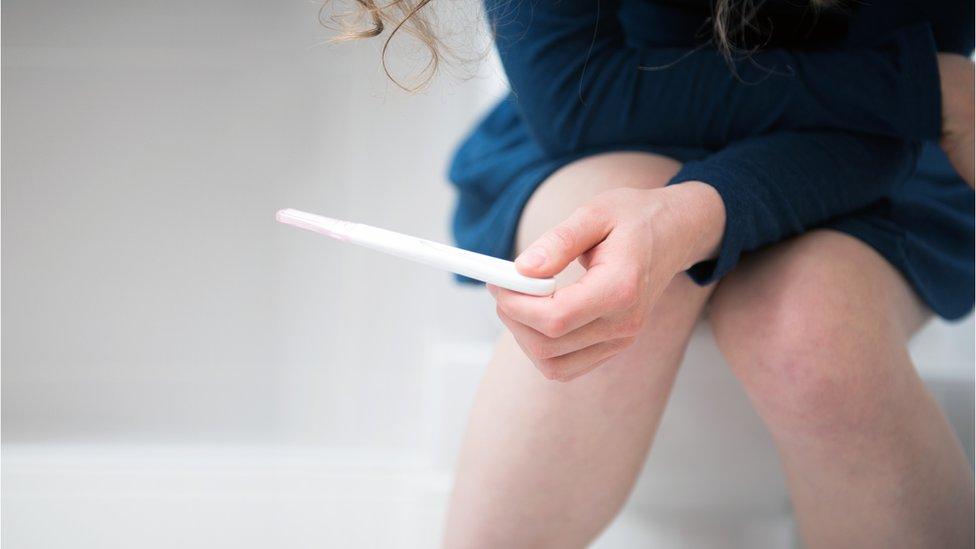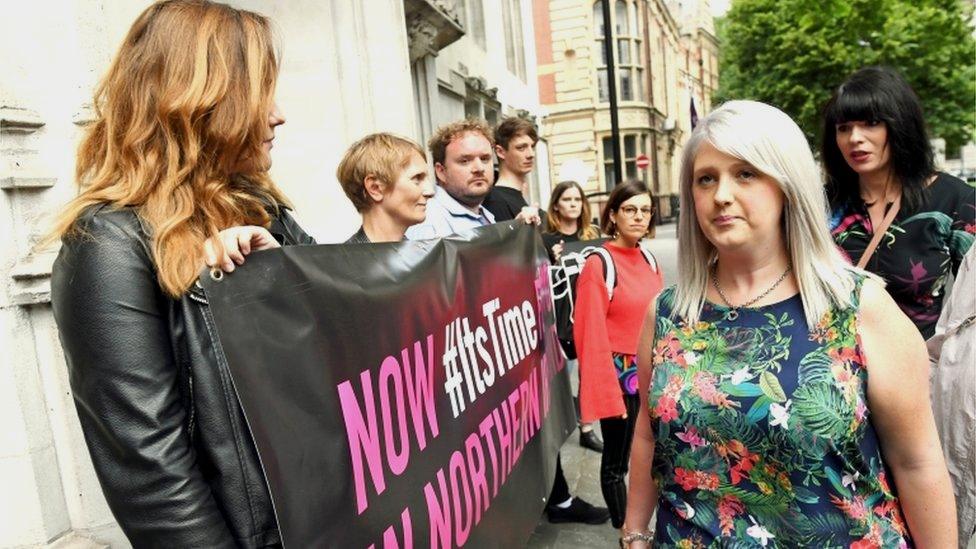Abortion pills: Judgement reserved in judicial review
- Published

The purchase and use of abortion pills is illegal throughout the UK
Judgment has been reserved in a judicial review brought by a woman being prosecuted for buying her then 15-year-old daughter abortion pills.
Lawyers for the mother and daughter, who have been granted anonymity, argued the PPS decision to bring criminal charges breaches their human rights.
The woman could face up to a five-year jail term if convicted.
Lord Chief Justice Sir Declan Morgan said the three Judges would give their decision as soon as they could.
Unlike other parts of the UK, terminations are only legal in Northern Ireland to protect the pregnant female's life or if there is a risk of serious damage to her well-being.
The mother faces two charges of unlawfully procuring and supplying drugs with intent to procure a miscarriage, contrary to the 1861 Offences Against the Person Act.
A lawyer representing the Public Prosecution Service told the court on Wednesday that a possible interpretation of the circumstances was that the 15-year-old was "the potential victim of a criminal offence".
Further issues had been raised about the disclosure of information from a GP, and child and adolescent mental health services as part of the police investigation.
The law on abortion in Northern Ireland explained
According to the prosecution, the doctor's notes contain disputed "hints" that the daughter felt pressured over taking the medication.
It was also argued that a key question was whether the girl was beyond the 10-week mark in her pregnancy when the pills were sought.
The relevant online questionnaire had been filled in by her mother when it should have been completed by the daughter, the court was told.
The Belfast High Court also heard from the Attorney General for Northern Ireland, John Larkin QC.
He said that the case amounted to a "collateral" challenge to the ongoing criminal proceedings.
'Both lives matter'
Mr Larkin argued that the challenge was not merely to the decision to prosecute, it was also in some way founded on the supposed legality of the provisions of the legislation that are being enforced by the PPS.
He told the court an attempt to change Northern Ireland's abortion regime had been "comprehensively rejected" by the Stormont Assembly in February 2016.
He said that "the law in Northern Ireland considers that both lives matter" seeking to protect both the mother and child, and he invited the court to continue to uphold that.
In June, a majority of the Supreme Court Judges said that the current law in NI on abortion was incompatible with Article Eight of the European Convention on Human Rights.
Earlier on Wednesday, the Lord Chief Justice, Sir Declan Morgan, commented that the failure of the legislature to make clear what was to happen as a result of that ruling was "unsatisfactory".
'Procuring and supplying poison'
This is the first time a prosecution relating to Northern Ireland's abortion law has been challenged.
Earlier in the case, it had been claimed that the teenage girl was removed from a classroom and spoken to by police about the abortion pills purchase without her parents knowledge.
But a lawyer for the PSNI responded that the officer involved was focused only on her state of well-being, and never intended to question her.

How does the law in NI differ from the rest of the UK?
Taking drugs to bring on a miscarriage without doctors' consent is an offence anywhere in the UK under the 1861 act.
But in England, Scotland and Wales, an abortion can be legally carried out up to the 24-week limit and can be legal beyond that limit in cases where the mother's health is threatened or if there is a substantial risk the baby will have serious disabilities.
Women in Northern Ireland only have access to abortions when a woman's life is at risk, or there is a permanent or serious risk to her mental or physical health.
Women in England will be allowed to take an early abortion pill at home, under a government plan due to take effect by the end of the year, bringing the law into line with Scotland and Wales.

- Published20 September 2018

- Published27 October 2016

- Published7 June 2018

- Published25 August 2018
